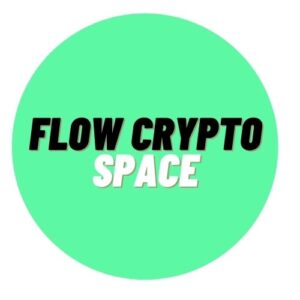The Evolution of OpenSea: A Controversial Journey
The path of OpenSea has been tumultuous and surrounded by controversy. Emerging from Y Combinator’s support, the startup quickly ascended to unicorn status and established itself as a dominant player in the NFT market. However, by 2025, its trajectory has transformed into a narrative of “rise and fall.” On February 13, the New York-based platform unveiled a new iteration, OS2, which aims to tackle some of the prevalent issues, yet still overlooks others. Despite a slowdown, the non-fungible token (NFT) market continues to exist, with a notable trading volume of $8.8 billion in 2024. The introduction of OS2 is seen as a pivotal move to reverse the current downturn, a challenge that is far from straightforward.
The NFT Market’s Struggles and OpenSea’s Challenges
As the NFT market began to decline in 2022, numerous media reports questioned the viability of NFTs. This downturn was exacerbated by a wave of scams that resulted in significant financial losses for users, alongside security breaches and accusations of insider trading. Critics argue that these issues have tarnished the reputation of NFTs, with both skeptics and proponents within the crypto community expressing discontent. Many newcomers to the crypto space mistakenly conflate “crypto” with “NFTs,” often linking both to fraud and high-risk investments. OpenSea, which once commanded a 90% share of the market, has also faced scrutiny as many allegations directed toward NFTs apply to it, especially given its prominent position. A former employee described the chaotic environment in 2022 as akin to a “blood orgy.”
The prolonged crypto bear market significantly impacted OpenSea’s financial health, particularly as it held substantial investments in Ether (ETH), which suffered a considerable price drop in 2022. The emergence of rival platforms like Blur and Magic Eden hastened OpenSea’s decline. Amid this turmoil, the company sought new strategies for revitalization while simultaneously implementing a series of unexpected layoffs. Compounding these challenges, the U.S. Securities and Exchange Commission (SEC) initiated regulatory actions against NFTs, with OpenSea among the targets. As the NFT market receded from public attention and contracted, OpenSea transitioned from a monopolistic force to a beleaguered player in the sector. The need for a platform overhaul became evident, leading to the anticipated launch of a new version of OpenSea.
What’s New in OS2?
The recently unveiled OS2 represents a comprehensive overhaul of the platform, primarily focusing on transitioning into a Web3 environment. This upgrade allows users to trade both fungible and non-fungible tokens seamlessly across multiple blockchain networks, eliminating the necessity for token bridging or swapping. A key feature of this launch is the introduction of the OpenSea token ($SEA), which aims to promote the platform’s long-term sustainability.
Initial reactions to the announcements have been largely positive, with users and beta testers sharing their experiences. While some have noted the absence of features like trait-based sales searches, the overall sentiment towards the update has been supportive. However, critics have pointed to ongoing security vulnerabilities and issues of plagiarism, suggesting these factors have negatively impacted the user experience. Moreover, OpenSea founder Devin Finzer has publicly acknowledged the need for a shift in philosophy, stating, “The NFT bull market changed us. We got too corporate, too web2, and let fear of risk outweigh building for users.”
Given OpenSea’s previous mismanagement of security concerns, the lack of emphasis on safety in the new announcement has been a letdown for many. This pivot to a Web3 model might be an attempt to place some of the onus for security on the users themselves. It remains hopeful that further updates concerning safety measures will be forthcoming. The contraction in OpenSea’s market share, coupled with the overall decline in NFT enthusiasm, might create an opportunity for the company to enhance user experience and security. Additionally, the current favorable regulatory environment, particularly with the nomination of Paul Atkins as chair of the SEC, may provide a supportive backdrop for OpenSea’s rejuvenation efforts. Whether the revamp will lead to a successful resurgence remains to be seen.

